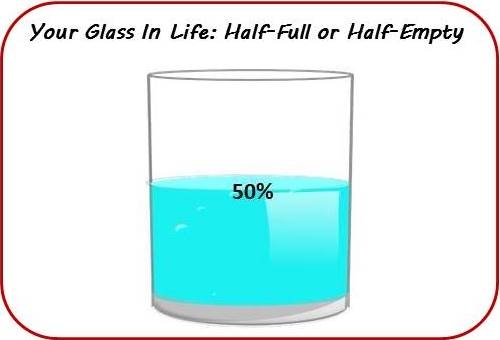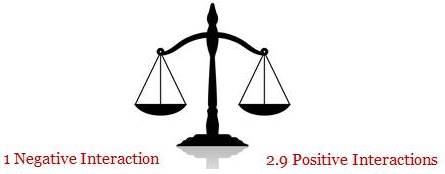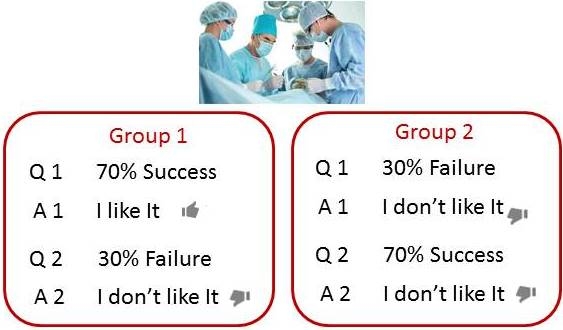30 Sep 2015 Is Your Glass Half-Full?

Here is a question for you:
Do you know what situations in your life cause you to see your glass as half-full, and which cause you to see it as half-empty?
The Science:
Dr. Allison Ledgerwood, a psychologist at UC Davis, did some very interesting work which shows that negative experiences have a much longer residual impact on our minds than positive experiences. They tend to hijack our thoughts and emotions for much longer, and hence may have a more lasting effect on our decisions and actions or inactions.
The Imperfect Medical Procedure:
In this experiment, Ledgerwood and her colleague Amber Boydstun, told two groups of potential patients about a new medical procedure. The first group was told that the procedure has a 70% success rate. Naturally, they liked the procedure. The second group was told that the new procedure has a 30% failure rate, and they did not like it.
The participants in Group 1 were then told that the procedure had a 30% failure rate, and now they did not like it any more. Similarly, the participants in Group 2 were told that the procedure had a 70% success rate, but surprisingly they stuck with their negative opinion of the new procedure.
Do you like the Governor?
In a second experiment Ledgerwood and Boydstun told participants in Group 1 about a governor who saved 60% of the jobs in his state. The participants naturally liked this governor. Participants in Group 2 were told that the governor lost 40% of the jobs in his state, and again, most of the participants in Group 2 did not like this governor. They thought he was not doing a good job.
Then the facts in the questions were reversed. Group 1 was told that the Governor lost 40% of the jobs and again, participants in Group 1 did not like the governor any more. Likewise, participants in Group 2 were told that the governor had save 60% of the jobs, but they still thought he was doing a terrible job.

Conclusion:
Ledgerwood and Boydstun concluded that the impact of negative experiences and information on our minds tends to stick for much longer then the impact of good news.
The Losada Line:
In his book The Happiness Advantage, Shawn Achor cites the work of psychologist Marcial Losada who found after years of research, that it takes 2.9013 positive interactions to overcome the impact of one negative interaction.

The Recommendations:
Can you overcome this stickiness?
Ledgerwood and Boydstun argue that we can indeed program our minds to overcome the lasting impact of negative news. But like any change of the natural state of affairs, this requires deliberate and consistent effort.
Gratitude – The path to positive mindset:
The solution is rather simple – you just need to reach the Lasada Line.
Expose your mind to positive messages of gratitude and hope, and you will soon find that your negative thoughts will fade away.
Contract your family and friends:
But what if you do not have within you the mental energy to recount things you are grateful for, when all you can think about is the negative experience that clouded your day.
Ledgerwood recommends that you sign a contract with your family members and friends. Let them prompt you and even force you to count your blessings in moments of despair, and commit to repay them when they are down.
You’d be amazed of your power to re-wire your mental network.
Learn More:
To learn more about our Willpower Program visit our website at www.thewilltochange.com
References:
A. Ledgerwood and A. Boydstun. Loss frames are cognitively stickier than gain frames, Journal of experimental psychology, 2013.
A. Ledgerwood, TED Talk: https://www.youtube.com/watch?v=7XFLTDQ4JMk&feature=youtu.be
S. Achor, The Happiness Advantage, Crown Publishing, 2010.




